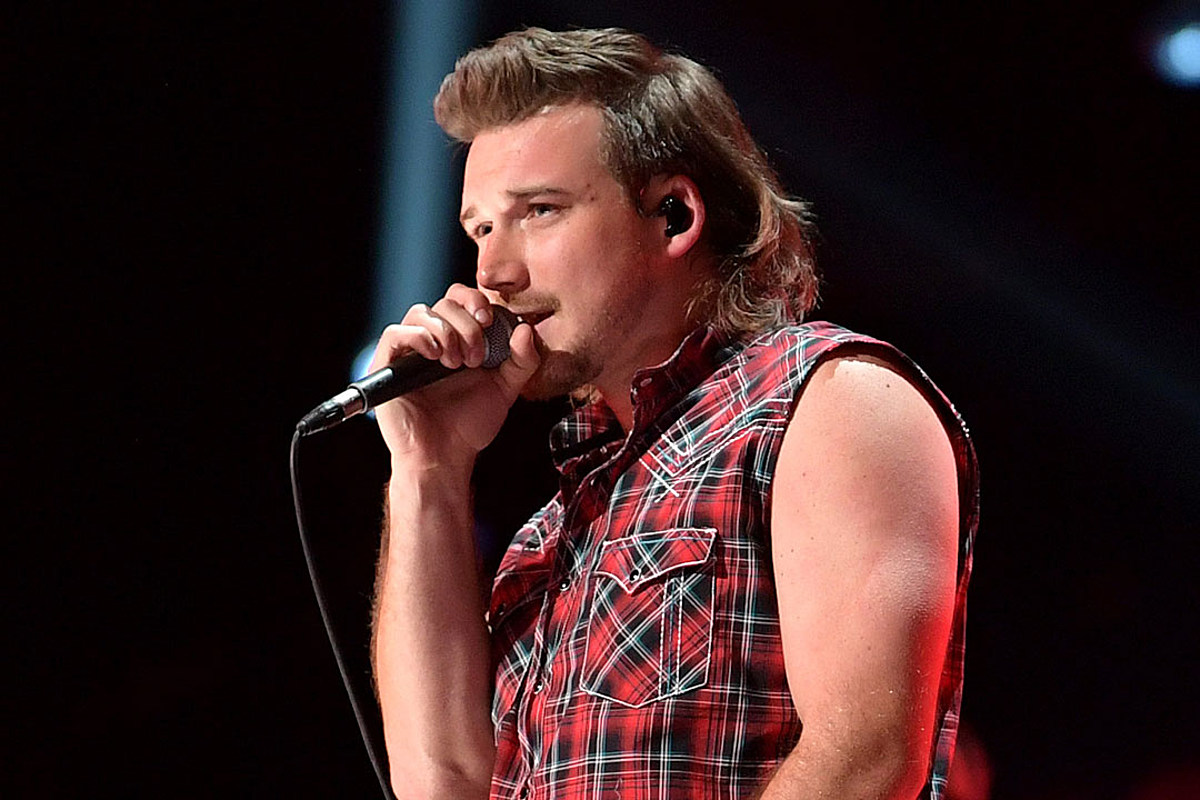Just over five months after he was caught on camera using a racist slur, Morgan Wallen sat down with Good Morning America anchor Michael Strahan to discuss the incident and how he’s worked to learn and grow from it in what has been a quiet time for him, career-wise.
Wallen says he spent 30 days in rehab in San Diego (he previously acknowledged that his use of the N-word came at the end of a “72-hour bender”), presumably for alcohol abuse. He also says he met with members of the Black Music Action Coalition, as well as Universal Music Group Executive Vice President and Chief People and Inclusion Officer Eric Hutcherson; gospel singer BeBe Winans; and record executive and 300 Entertainment co-founder and CEO Kevin Liles, all of whom are Black.
Wallen says he donated $500,000 — an estimation of the money he made when sales of his music spiked after TMZ released the video of him using the N-word — to BMAC and other organizations. He looked remorseful and apologetic on camera in giving the interview, which aired on Friday (July 23), but when Strahan directly asked Wallen if the singer feels as though country music has “a race problem,” Wallen said, “It would seem that way,” but acknowledged that he hasn’t “really sat and thought about that.”
It doesn’t require too much sitting and thinking to realize the answer to Strahan’s question: Yes, country music does have “a race problem.” A March study by SongData’s Dr. Jada Watson examining radio airplay and other representation of country artists of color from the start of the new millennium through 2020 showed unequivocally that non-white artists remain vastly underrepresented on country radio and major Nashville labels.
“The results for representation on country format radio suggest a racial hierarchy that exists within the industry and considers the deep connections between each facet of the industry,” Watson writes in the study. “Radio airplay remains an integral component of the development of an artist’s career, including the promotional support received from a label and eligibility for awards by the two main trade organizations. This data suggests that the lack of representation on airplay does not just impact the trajectory of an individual artist, it also impacts the careers of those around them and of future artists.”
Perhaps Wallen felt he was better off breaking down his own behaviors and biases before tackling the industry’s larger issues? After all, he did say in April — when he announced that he wouldn’t be touring this summer — that he had been “really work[ing] on myself.”
On social media, Wallen has kept content light: In recent months he’s posted more than once while fishing with fellow country star Eric Church (who called Wallen’s use of the slur “indefensible”) and hanging out with some other famous pals. Video of him making pop-up appearances at Kid Rock’s and other Lower Broadway bars also surfaced on social media.
During his time in rehab, Wallen tells Strahan, he was “just trying to figure out: Why am I acting this way? Do I have an alcohol problem? Do I have a deeper issue?” In their interview, Wallen didn’t expand on what he discovered in response to those questions.
He did, though, try to explain why he used the N-word in the first place: “I was around some of my friends, and we say dumb stuff together,” he said, adding that he does not use the slur “frequently” (by his estimation) and that he “didn’t mean it in any derogatory manner.”
“In our minds, it’s playful. That sounds ignorant, but that’s really where it came from,” Wallen continued, also admitting that he’s “not sure” why he thought the N-word was an appropriate word to use in that way and reasoning, “I think I was just ignorant about it.”
Perhaps he was offering insight about how he felt then, not how he feels now? Because throughout the past few months, others have publicly vouched for Wallen and the changes they’ve seen in him.
Rising hip-hop artist Lathan Warlick, who has found fans and collaborators within country music — and who, it should be noted, is Black — praised Wallen on Instagram in late June, for example. And in a recent Billboard story featuring Black music executives in Nashville, Candice Watkins — who is vice president of marketing at Big Loud, Wallen’s label — revealed that Wallen requested a meeting with her about a week after the video of him using the N-word surfaced.
“I didn’t know if I’d walk out angrier and more hurt than when I walked in. But no stone was left unturned in that conversation; it was deeply honest,” Watkins shared earlier this year. “I’ve encountered direct racism multiple times, and never has a white man had the remorsefulness to apologize to me. There are 30-, 40-, 50-, 60- and 70-year-old men who owe me that apology. So it’s not lost on me that a 27-year-old was able to do what others in this business have failed to.”
In the GMA interview, Strahan — who is Black — pressed Wallen on his actions, even offering a brief history of the N-word and explaining that he’s been called the word before. He point-blank asked the singer if he “understand[s] why it makes Black people so upset.”
“I don’t know how to put myself in their shoes, because I’m not [Black] …,” Wallen responded. “I understand that that must sound like, ‘He doesn’t understand.'”
When Wallen swiftly faced backlash for his actions from country fans and his fellow artists, as well as from within the industry and some of its awards shows, in February, he didn’t fight his fate. ”I appreciate those who still see something in me and have defended me,” he said at the time. “But for today, please don’t. I was wrong. It’s on me to take ownership of this, and I fully accept any penalties I’ll face.”
Previously, Wallen made a similar statement after a weekend of maskless partying after a University of Alabama football game caused him to lose his musical guest spot on an October episode of Saturday Night Live. He indicated that he’d be taking an undisclosed amount of time away from his career after that.
Nearly half a year after his use of the N-word, the Country Music Association is allowing Wallen’s music to be eligible for Album, Single and Song of the Year so as not to penalize his collaborators (Wallen himself will not be eligible for Entertainer or Male Vocalist of the Year, however). His song ”Sand in My Boots,” meanwhile, has been added to rotation by more than a dozen country radio stations.

